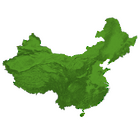Mandatory Ethical Standards
and Values-Oriented Actions
From a small expert office in Berlin to the world’s largest independent, non-listed expert organization in the TIC industry: DEKRA has, over the past nearly 100 years, become a significant international player. The company’s success is primarily due to the expertise and know-how of its approximately 50,000 employees in over 60 countries on all continents, alongside its wide range of services. DEKRA’s international presence reflects diversity in cultural, social, political, and national dimensions. This diversity is respected and appreciated both within the workforce and in the countries and societies where DEKRA operates as a company. At the same time, the expert organization supports the right to freedom of expression and privacy. Moreover, it is committed to adhering to internationally applicable workers’ rights within the company and its supply chain, such as the guidelines and standards of the International Labour Organization (ILO).
DEKRA’s Declaration of Principles for Respect for Labour- and Human Rights (formerly DEKRA Social Standards) is also based on the ILO standards. This applies to areas such as discrimination and disadvantage, equal opportunity, occupational safety and health, working hours and remuneration, as well as to topics like freedom of association and co-determination, freedom of expression and protection of privacy, and the exclusion of child labor, forced labor, slavery, and human trafficking. Looking to the future, DEKRA plans to improve the monitoring of HR data as part of HR transformation and enhance pay transparency. DEKRA also affirms its commitment to the principles of the UN Global Compact and strives to uphold workers’ rights within its sphere of influence. This commitment is also required of its partners in the supply chain, who are held accountable through corresponding standards and multi-level sustainability processes in procurement.


















































